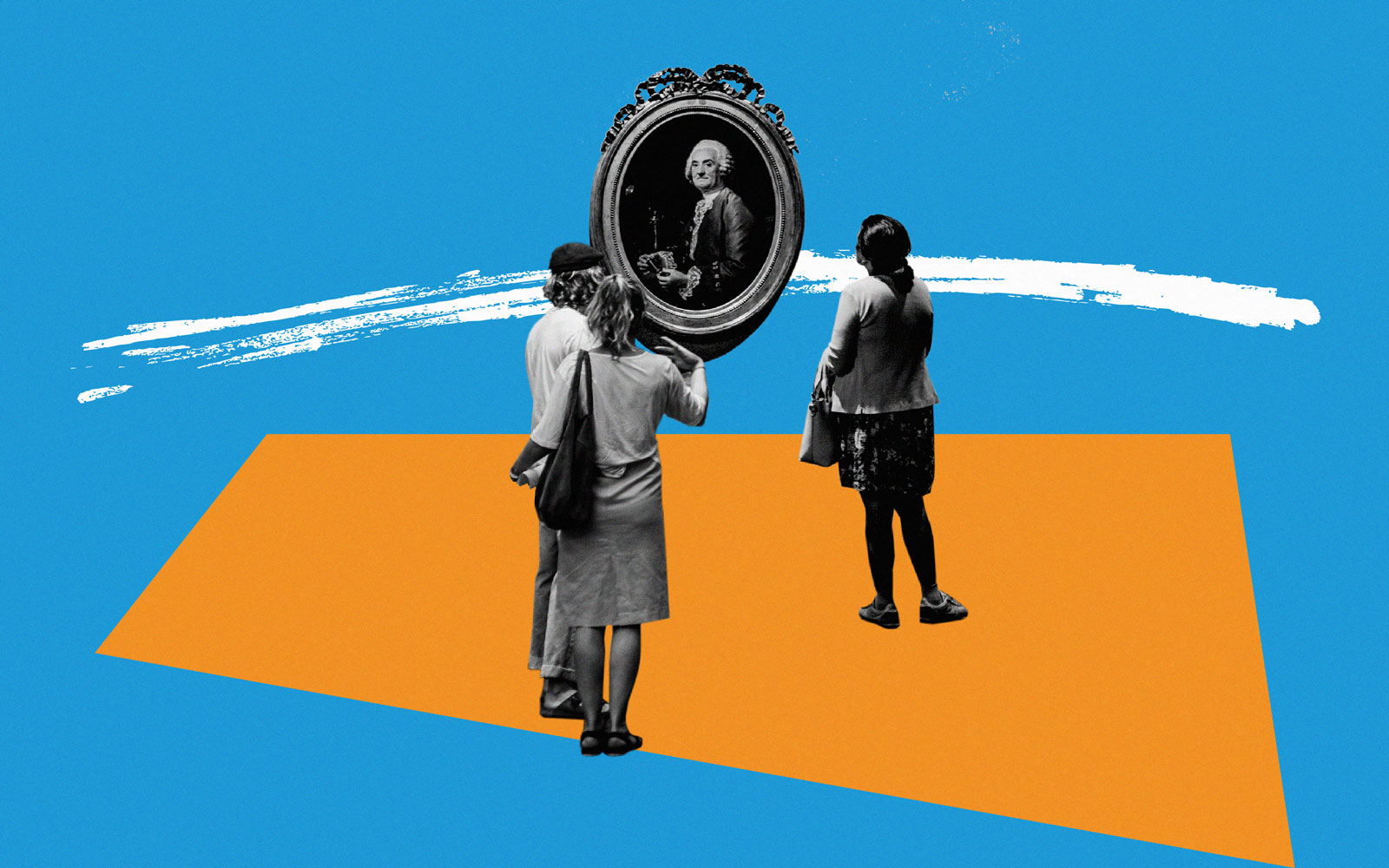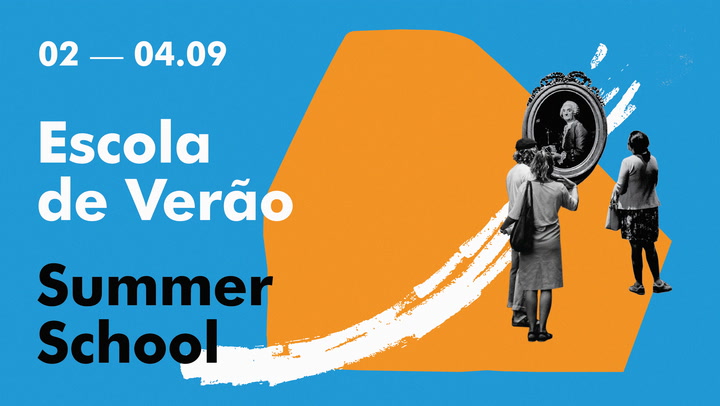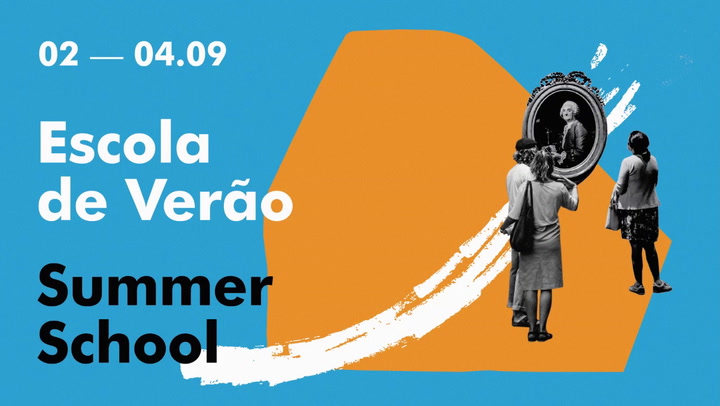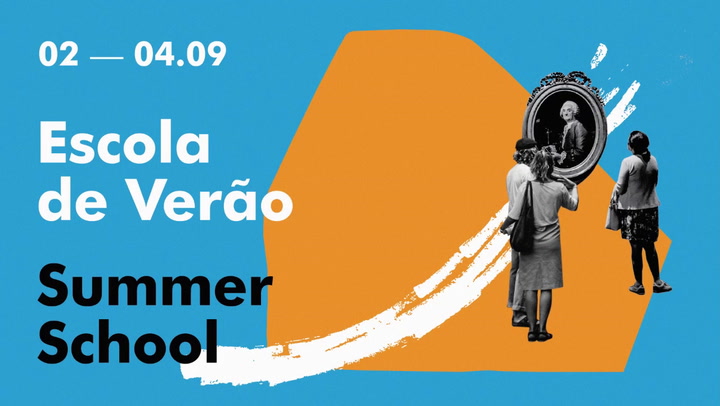Event Slider
Date
- / Cancelled / Sold out
Location
Auditorium 2 Calouste Gulbenkian Foundation OnlineTRANSMISSION
This event will be live broacasted on this page.
The first Summer School of the Calouste Gulbenkian Museum will be a space for exchange, debate and training that brings together experts from leading national and international museums and cultural institutions. This year it will focus on the relationship between museums and education.
The opening conference on 2 September will explore the theme of the (in)utility of beauty by bringing together a diverse group of thinkers, from the disciplines of science to aesthetics, for a multidisciplinary discussion of the challenges inherent to this subject.
On the following two days of the programme, the Museum will encourage discussions among specialists and professionals from national and international museums and cultural institutions, such as the Museu Nacional de Arte Antiga and the Money Museum (Lisbon), the Louvre Museum (Paris), the Victoria & Albert Museum and the National Gallery (London), the Museo Reina Sofía (Madrid), the Rijksmuseum (Amsterdam) and The Frick Collection (New York).
The aim is to explore issues such as the role of educational services today, the importance of participation and inclusion of diverse audiences in cultural programming, the growing presence of digital, and the challenges posed by the pandemic and post-pandemic contexts.
TRANSMISSIONS
Sep 02 Session
Sep 03 Session
Sep 04 Session
Programme
17:30 Welcome
António Filipe Pimentel, Museu Calouste Gulbenkian
Benjamin Weil, Centro de Arte Moderna, Fundação Calouste Gulbenkian
Guilherme d’Oliveira Martins, Fundação Calouste Gulbenkian
18:00 – 20:00 Opening session
Art matters. About the (in)utility of the Beautiful
‘Late have I loved you, Beauty so ancient and so new, late have I loved you!’
Saint Augustine
Art matters? How can we assess the utility of Beauty in our society, faced with the complex vital needs revealed by the pandemic – a context which, on the contrary, seems rather to place it on a level of uselessness? Is Art (in the broad sense) essential to life, simply useful, or ultimately, insignificant? When did we lose sight of the fact that all areas of human knowledge (including the technical) were initially organised into ‘arts’ (mechanical or liberal), and that, consequently, education (knowledge) itself originated in this context, with admission to university faculties of arts preceding admission to all others? Surely, we all remember the polished words of Churchill, when he refused to cut funding to Culture and the Arts during the Second World War (‘then what are we fighting for?’) – or have we already forgotten (perhaps too quickly)?
‘Beauty is truth, truth beauty’: From John Keats to quantum physics
Carlos Fiolhais
Modern Beauty
Maria Filomena Molder
Alterity: the first act of beauty
John Romão
Alternative artistic territories that challenge the concepts of Beauty x (De)institutionalise cultural dynamics
Namalimba Coelho
I am a wastepaper collector, but I don’t like it. So I think: Pretend I’m dreaming
Anabela Mota Ribeiro
What Art reminds the technical world
Henrique Leitão
Moderator:
Paulo Pires do Vale
09:30 Registration and presentation
10:00 1st session
Training and Mediation: ‘Education Departments’
Museum Education Departments are responsible for assuming important roles as activators and facilitators of knowledge. Through their increasingly broad activities, audiences are invited to assume the role of catalysts in the learning process. Listening to the arguments of those on the ground, the relevance of their proposals and the role they play in contemporary society is essential. Will the training / mediation dichotomy remain valid? Or should education services expand their sphere of action and revise the semantics, adapting themselves to the new challenges of the present?
Listen, act, transform – Why do we do what we do?
Susana Gomes da Silva, Centro de Arte Moderna, Fundação Calouste Gulbenkian
Designerly Learning: Museum Education for the Future
Helen Charman, Victoria & Albert Museum, London
Lenses, triggers and other devices: widening the discourse
Marta Carvalho, Museu Nacional de Arte Antiga, Lisbon
Around the collections, co-creation with the public at large
Christine Bluard, Musée royal de l’Afrique centrale, Tervuren
Inhabiting the Museum
Marta Moreira de Almeida, Museu de Serralves, Porto
How does it make you feel? The challenges of art museums
Inês Fialho Brandão, investigadora/museóloga
Moderator:
João Carvalho Dias, Museu Calouste Gulbenkian
11:30 – 11:45 Coffee break
11:45 Debate
14:30 2nd session
Reaching Across Divides: integrating audiences
Ensuring that our institutions are open to a wide audience, in which everyone feels welcome and is welcomed, means thinking of inclusion as a concept that crosses demographics, whether it be social or educational background, address, gender or age. Museums on both sides of the Atlantic are reaching out across societal ‘divides’ to facilitate new experiences of their collections, beyond the one-off tourist visitor to engage with diverse local publics. Recent experiments have involved bringing museum exhibitions to the doorsteps of universities to involving neighbors in the creation of programming. What are the joys and challenges in these adventures? And what can we learn from listening to and sharing with our communities for the future of our museums?
Curating the contemporary city
Domenico Sergi, Museum of London, London
Demystifying Museums and Creating Connections Through Teen Councils
Sana Mirza, Freer Gallery of Art and Arthur M. Sackler Gallery, Smithsonian’s National Museum of Asian Art, Washington
Artists, Art and Others: the Youth Friends Group of Museu Nacional de Arte Antiga
Gonçalo Albergaria (and Duarte Bénard da Costa), Youth Friends Group of Museu Nacional de Arte Antiga, Lisbon
Between Neighbours Project – Taking stock after five years
Diana Pereira, Museu Calouste Gulbenkian
Street art, the Louvre (masterpieces)
Cyrille Gouyette, musée du Louvre, Paris
Moderator:
Jessica Hallett, Museu Calouste Gulbenkian
15:45 – 16:15 Debate
16:15 – 16:30 Coffee break
16:30 3rd session
Museums for All: the exception is the rule
Museums belong to, and are, for everyone: spaces which involve and integrate differences. In addition to being physically accessible, museums should propose adapted programs so everyone can enjoy, with the very same quality, their collections. Integration and communication are central to museum agendas, enabling them to fulfill their mission as convening agents of society. Exploring different ways of involving diverse and heterogeneous audiences, sharing varied experiences that offer alternatives to perceiving and understanding museum collections is key here.
The commitment of an artistic education to diverse audiences
Margarida Rodrigues, Centro de Arte Moderna, Fundação Calouste Gulbenkian
Money and beauty, a (not always) likely relationship
Ana Rita Canavarro, Museu do Dinheiro, Lisbon
MNAA: within reach
Adelaide Lopes, Museu Nacional de Arte Antiga, Lisbon
Enter but leave soon: The logic of inclusive exclusion in relation to education departments in museums
María Acaso López-Bosch, Museo Reina Sofía, Madrid
Byways to the Mucem, another way to go to the museum
Cécile Dumoulin, Musée des civilisations de l’Europe et de la Méditerranée (Mucem), Marseille
Moderation:
Clara Serra, Museu Calouste Gulbenkian
17:45 Debate
09:30 Registration and presentation
10:00 4th session
Communicating the Museum: History and stories
Simultaneously curator and seducer, the curator’s mission is to protect, but also to stage and give life and context to the museum’s collections, preserving history and sharing the small, but often fascinating ‘stories’ of the lives of objects. Museums are knowledge-making places which interact with audiences, in their own times, and so promoting debate around the strategies used to attract them, as well as how to escape the “mausoleum” museum model of the ivory tower is important. The risks and virtues of more ‘radical’ approaches to museum collections, between removing barriers and demystifying objects, will also be discussed.
Communicating coins in museums: telling stories with small objects
George Watson, Swansea University
Van Huysum Visits: Reaching audiences who have been disproportionately affected by Covid-19 across the UK
Karen Eslea, The National Gallery, London
What do works of art tell us? From Turner to the Mediterranean crisis
Andreia Dias, Centro de Arte Moderna, Fundação Calouste Gulbenkian
Curating as pedagogy: university students and the museum
Sussan Babaie, The Courtauld Institute of Art, London
Critical revisitation – Historical narratives
Margarida Ferra, Acesso Cultura, Almada
Moderator:
Jorge Rodrigues, Museu Calouste Gulbenkian
11:15 – 11:30 Coffee break
11:30 Debate
14:30 5th session
Audiences during and after the pandemic: the ‘new normal’
When Europe decisively reopens post-covid, what will the role of museums be? During the pandemic institutions responded swiftly to create a virtual presence, with innovative online exhibitions and programs, and then when things began to ease, to focus on bringing visitors back inside with new types of exhibitions and safety protocols. Education departments were at the forefront of these changes, and now find themselves in a phase of introspection, as they begin to consider how to work in the ‘new normal’ and have the best of both worlds. Five museums share their experiences, concerns, and plans for keeping new publics and recovering old ones.
Behind closed doors: a year at the Wallace Collection
Andrew Nelson, The Wallace Collection, London
Yes, we can! Digital tours for visitors with impairments
Friederike Lassy-Beelitz, Albertina, Vienna
Exhibitions during and after pandemic an experience
Lavinia Galli, Museo Poldi Pezzoli, Milan
Practice what you preach. How to stay true to yourself in a changing society
Thijs Gerbrandy, Rijksmuseum, Amsterdam
Back to the Present: Digital Thinking and the Museum
Manuel Fontán del Junco, Fundación Juan March, Madrid
Moderator:
Luísa Sampaio, Museu Calouste Gulbenkian
15:45 – 16:15 Debate
16:15 — 16:30 Coffee break
16:30 6th session
A Click Away: the digital museum
During the pandemic, digital transformation created new audiences and new educational opportunities. It also significantly altered immediate objectives, and even something of the essence of the mission of museums, requiring new forms of investment in specialised IT and human resources.
Now that these steps have been taken, where will the new balance be struck between the ‘real’ and ‘virtual’ museum? How can they be blended and articulated to serve each other? To create positive environments for the promotion of knowledge, citizenship, democracy, and sustainability?
Luminous Pedagogies
Rika Burnham, The Frick Collection, New York
Hardware, Software and Brainware in the future of Cultural Heritage: the «digital approach»
Maurizio Quagliuolo, HERITY, Rome
Tomorrow arrived Yesterday – and affords the chance for Small museums to be Huge
David Glasser, Ben Uri Gallery and Museum, London
A late awakening – some reflections on «the Digital museum» and learning
Charlotte Ahnlund Berg, Swedish National Heritage Board, Department of Heritage Development, Visby
Moderator:
Rui Xavier, Museu Calouste Gulbenkian
17:45 Debate





